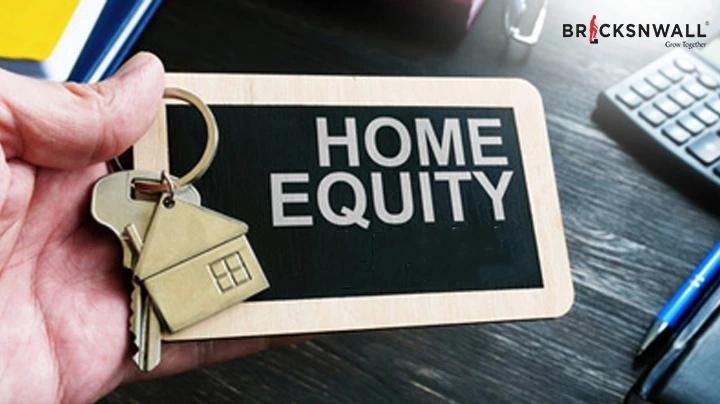Three Ways to Use Home Equity
Koheli

A few of the terms and expressions used in the real estate sector may be challenging to comprehend. To make buying and selling a home straightforward and trouble-free, you must have a firm grasp of every idea related to ownership rights. One of the most common terms customers need to understand is home equity. If you own a property, there is a strong probability that your equity has grown in recent years due to rising home values and timely mortgage payments. Home equity grows over time and could help you accomplish particular goals. According to CoreLogic's most recent Equity Insights Report, the typical borrower currently has about $300,000 in equity.
Understanding your assets and how to use them is crucial as you consider your options, especially in light of inflation and recession rhetoric. The best source for information on how much equity you have in your house and suggestions on how to use it is a real estate expert.
A home equity line of credit (HELOC), which functions as a revolving line of credit based on the equity in your home, is comparable to a credit card. HELOC money can be drawn upon as needed, repaid, and then drawn upon once more. There is frequently a draw time of 10 years, during which you can use your credit as needed and make interest-only payments. Once the draw period is through, you must pay back all you borrowed plus interest during the repayment term.
Consider your home equity as a resource you can utilize for other financial goals, such as investing, remodeling, or moving. Lenders frequently permit you to utilize the equity in your house as security for new loans. For investors in real estate, this approach is typical. It can produce excellent results if done correctly, provided you are aware of the hazards.
Here are a few illustrations.
1. Put money back into your current home
A recent Point poll found that 39% of homeowners would spend their equity on home repair improvements if desired. This is an excellent solution if you want to modify your living situation but have yet to be quite ready to move.
You can modify your property to suit your demands and aesthetic preferences with renovation initiatives.
When making any modifications, remember that some improvements add more value to your home and are more likely to appeal to potential buyers than others. For instance, National Association of Realtors (NAR) research indicates that replacing or refinishing wood flooring has a high-cost recovery. Consult a local specialist for the best advice on deciding which projects to invest in to get the best return on your money when you sell.
2. Utilize your equity for other investments.
You are not required to keep your equity in the property just because you have it. Diversifying into a different asset class may be something to consider if you want to invest your equity.
Considering all these factors, employing your home equity to support your wealth creation strategy can be a wise and profitable choice.
This truly belongs in the larger category of wealth generation, though. Make sure to limit yourself to real estate when leveraging your home equity for investing. You may buy bonds with it, invest in the stock market, or choose a variety of managed funds. Although various risks are associated with each of these possibilities, it shows how many diverse ways to increase your wealth using the equity in your house.
Always consult your financial advisor before choosing, as they may consider your risk tolerance, objectives, and goals.
3. Purchase a House That Meets Your Needs
If your existing house is too small for your needs, it may be time to move to a larger one. Or your area is too big, and you need something smaller. Consider using your equity to buy a new property that will suit your changing lifestyle.
You can utilize your equity to pay down the property of your dreams if you want to renovate your current residence. And if you're looking to downsize, you might be startled to learn that some, if not all, of the price of your new house could be covered by your equity. By figuring out how much equity you have in your current home, you can utilize it to help pay for your next one.
Conclusion
Home equity is the proportion of a home's value that a homeowner owns as opposed to the lender of the mortgage loan. It includes any down payments made, the number of monthly mortgage payments applied to principal reduction, and any home value increase.
In addition to paying off the loan, you took to purchase your house, having equity allows you to borrow money.
For their financial needs, homeowners can obtain a home equity loan or a home equity line of credit. They could also think about refinancing with cash out. Home equity borrowing charges are typically lower than credit cards or personal loans.




